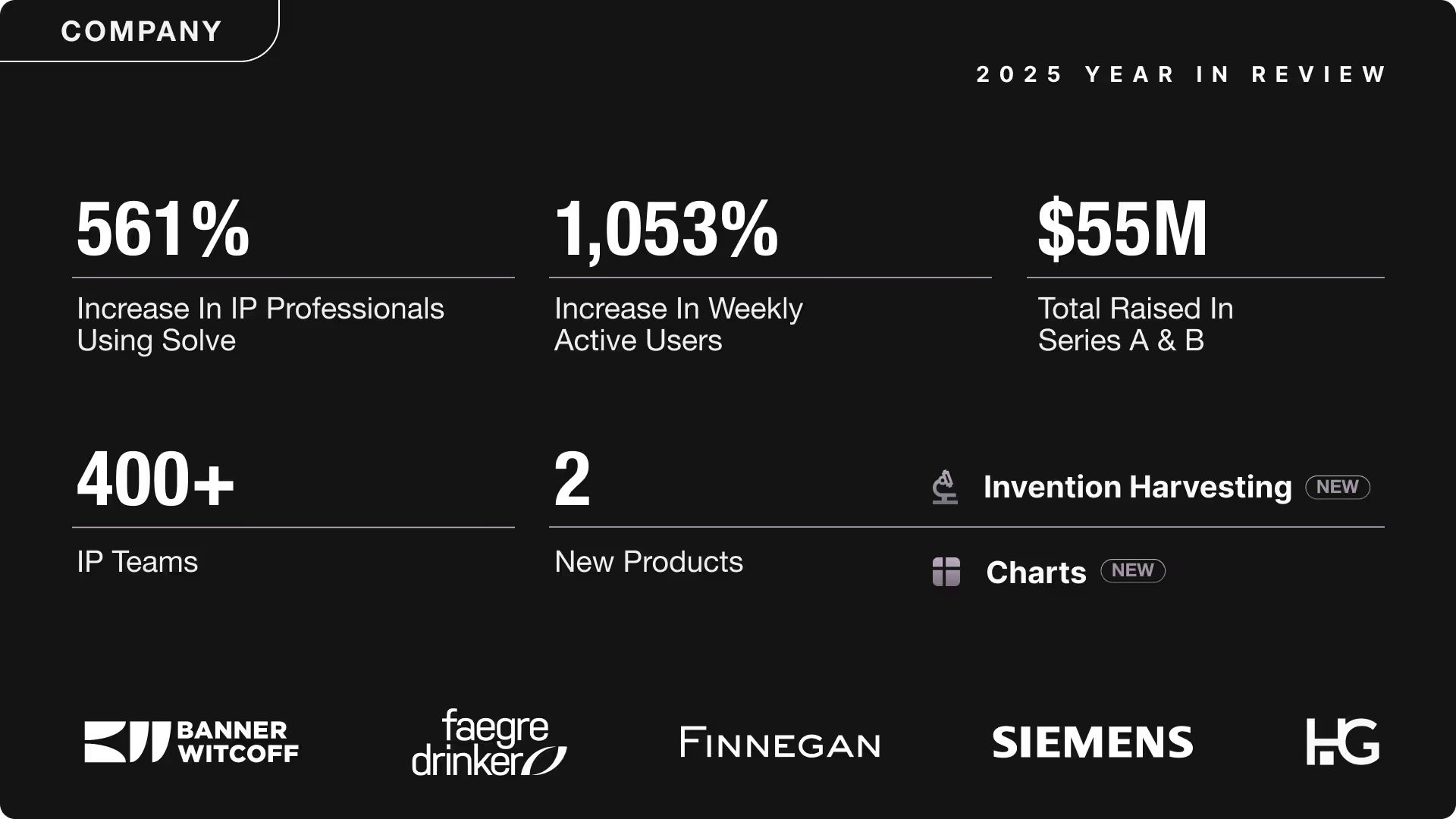Blog

Solve Intelligence at AUTM 2026: Supporting the Tech Transfer Ecosystem
Solve Intelligence is proud to sponsor and attend the AUTM 2026 Annual Meeting in Seattle, February 8–11, 2026.
AUTM's Annual Meeting is the premier gathering for technology transfer professionals, bringing together university tech transfer offices (TTOs), research institutions, industry partners, and IP professionals to connect, share insights, and develop partnerships that bring innovations to the marketplace.
We're sponsoring AUTM 2026 because we believe AI has a critical role to play in accelerating tech transfer, and we're committed to supporting the professionals who make it happen.
.png)
Szymon Pancewicz Joins Solve
We’re excited to welcome Szymon Pancewicz to Solve Intelligence!
.png)
The EPO Scales Up AI-Assisted Minute-Taking in Oral Proceedings
Artificial intelligence is becoming an everyday reality in intellectual property workflows. In a noteworthy development, the European Patent Office (EPO) has announced that it will expand the use of AI to assist in drafting minutes of oral proceedings in examination and opposition cases throughout 2026.
This move follows a successful pilot phase involving approximately 150 oral proceedings since May 2025.
.png)
Powering the Edge of Possibility: How MKS is Accelerating Innovation with Solve Intelligence
MKS has adopted a cutting-edge AI-powered tool by Solve Intelligence to transform patent drafting and analysis.

Solve in Practice: Drafting Antibody Patent Applications
Learn how to use Solve's Patent Copilot to streamline sequence listings, claims, and compliance with ST.26 and USPTO requirements
.png)
Johnathon Webb to join Solve’s Customer Advisory Board
We are excited to welcome Johnathon E. Webb, Partner at Faegre Drinker, to Solve Intelligence’s Customer Advisory Board.

Solve Intelligence 2025: Year in Review
A glance at Solve Intelligence's milestones throughout 2025.
